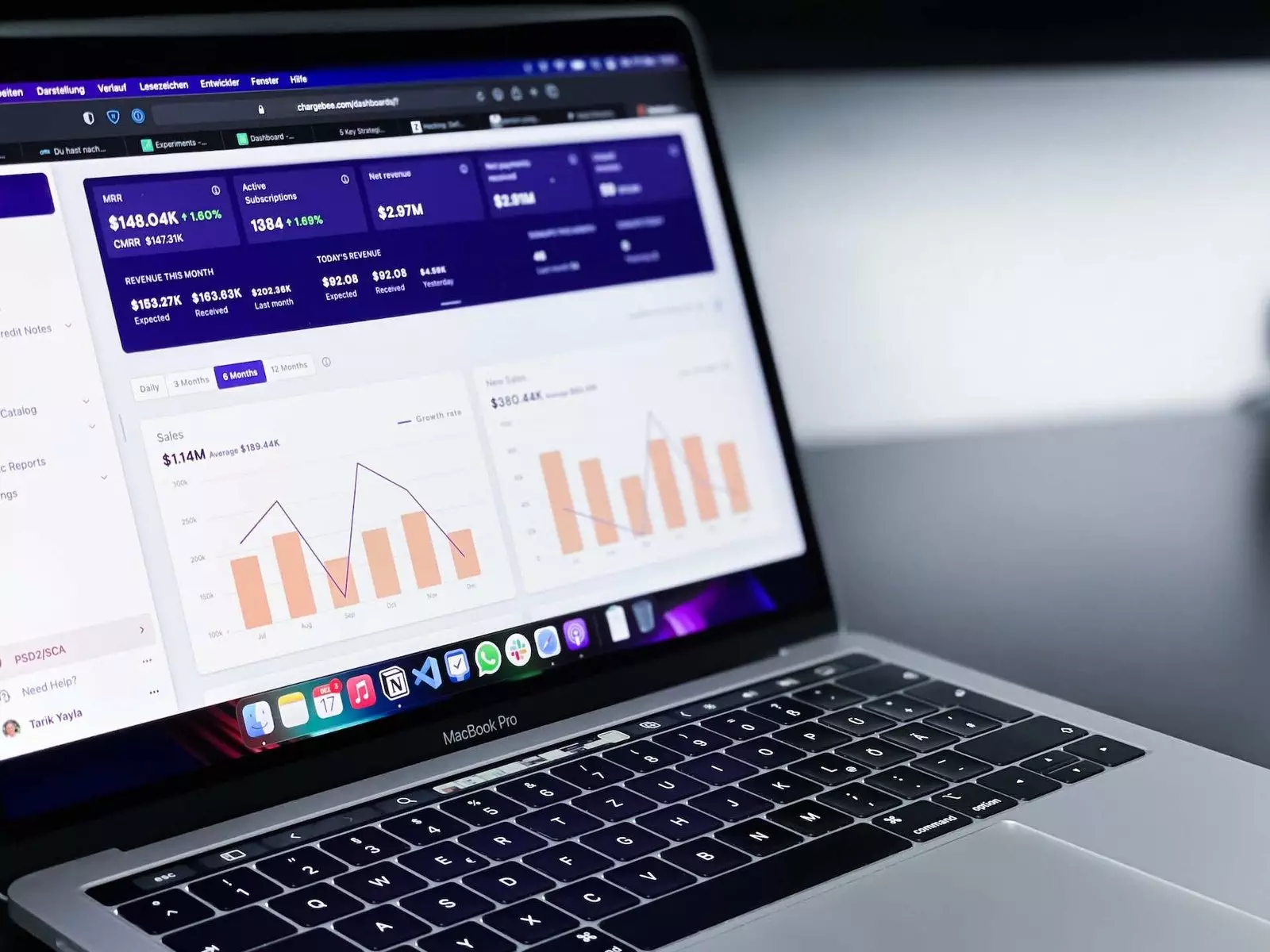Are you new to the world of PPC campaigns? Are you looking for some tips on tracking and measurement? If so, then this guide is for you! We’ll show you how to track your campaigns, measure their performance, and ensure that your money is well spent. Let’s get started!
What is PPC tracking?
PPC tracking is an important part of any successful PPC campaign. Tracking allows you to measure your campaign performance, identify areas for improvement, and make adjustments to optimize your campaigns for success. It involves gathering data such as impressions, click-through rate (CTR), the average cost per click (CPC), conversion rate, Quality Score, and more.
By using this data, you can better understand how your ads are performing and make strategic decisions on how to improve them. Additionally, PPC tracking also gives you the ability to track the return on investment (ROI) of your campaigns and measure the success of different ad variations.
By understanding what metrics to track and how to analyze this data, you can ensure that your PPC campaigns are delivering the best results possible.
Why is PPC tracking important?
PPC tracking is important for any business looking to optimize their campaigns and maximize ROI. By tracking key metrics such as click-through rate (CTR), cost per click (CPC), cost per acquisition (CPA), return on ad spend (ROAS), and conversion rate, and identifying high-value keywords, you can get a better understanding of how your campaigns are performing and make informed decisions on how to improve them.
Tracking these metrics also allows you to identify areas of strength and weakness in your campaigns, giving you the opportunity to make adjustments and further optimize your campaign performance.
With the right tracking and measurement in place, you can maximize your PPC campaigns and ensure they are successful.
5 PPC KPIs to track
Now that you know why PPC tracking is important, let’s dive into five PPC KPIs to track. Cost per Click (CPC), Click Through Rate (CTR), Cost per Acquisition (CPA), Return on Ad Spend (ROAS), and Conversion Rate is the primary metrics used to track the success of a PPC campaign. CPC refers to the amount you pay each time a user clicks your ad, while CTR is the percentage of users who click your ad after seeing it.
CPA is the amount you pay for each user who completes a desired action, such as making a purchase or signing up for a newsletter. ROAS is the total revenue generated divided by the total cost of running your ads.
Finally, the conversion rate tells you how many users took action after seeing your ads. By understanding and tracking these KPIs, you can improve your PPC campaigns and get more from each ad dollar spent.
Cost per Click (CPC)
Cost per Click (CPC) is one of many metrics you should track as part of your PPC campaigns. CPC measures the total cost incurred by a given ad or campaign divided by the total number of clicks that the ad or campaign has earned. In other words, it’s a measure of how much it costs to get a single click on your ad.
A high CPC could mean you are paying more per click than necessary, while a low CPC could indicate that you are not bidding high enough to compete in the market.
By tracking your CPC, you can ensure your bids are competitive and effective. Additionally, tracking your CPC over time can help you identify trends in the market and adjust your bids accordingly.
Click Through Rate (CTR)
Click-through rate is an important metric to track when it comes to measuring the success of your PPC campaigns. It measures the number of clicks your ad receives for every 100 impressions. It gives you a sense of how relevant your ads are to the people that are seeing them.
You should aim for a high click-through rate, as this indicates that your ads are well-targeted and likely to convert into sales. To get a better understanding of your CTR, you should compare it against industry averages and also track it over time. By doing this, you can identify areas for improvement and make necessary changes to your campaigns to ensure maximum success.
Cost per Acquisition (CPA)
Cost per Acquisition (CPA) is another important metric for tracking the success of your PPC campaigns. It measures the total number of conversions in relation to your ad spend, so you can compare the effectiveness of different campaigns.
To calculate CPA, divide the total cost of a campaign by the number of conversions it generates. For example, let’s say you have a campaign with a bid price of $6 and a cost of $5. If you generate 10 conversions, your CPA would be $50 ($500 / 10). CPA can help you determine how much you need to invest to get a desired number of conversions, so you can adjust your bids and budget accordingly.
Return on Ad Spend (ROAS)
Return on Ad Spend (ROAS) is an important metric to track in your PPC campaigns. It measures the amount of revenue you generate for each dollar you spend on advertising. Tracking ROAS will help you identify which campaigns are most efficient and effective at driving sales, so you can focus your efforts on those campaigns and optimize them further.
You can also use ROAS to analyze the performance of different ad variations, so you can create the most profitable ads for your business. With the right tracking metrics in place, you’ll be able to effectively measure and optimize your PPC campaigns for maximum return on investment.
Conversion Rate
Conversion rate is an important metric to track for a successful PPC campaign. It measures the effectiveness of your campaigns in terms of how successful they are at converting visitors into leads or customers. It is calculated by dividing the number of conversions by the total number of clicks on your ad.
Tracking conversion rate will help you identify which keywords are performing best and where you should invest more of your budget for maximum return on ad spend (ROAS). By closely monitoring this metric and making adjustments to your campaigns, you can optimize performance and maximize ROI from your PPC campaigns.
Identifying High-Value Keywords
Identifying high-value keywords is a crucial part of any PPC campaign. Quality Score is a metric that helps you determine which keywords are most effective for your campaigns.
The higher the Quality Score, the more relevant and optimized your ads are for the keyword. Aim for keyword quality scores of six or higher.
You can also use metrics like impressions, click-through rate (CTR), the average cost per click (CPC), and conversion rate to help you identify high-value keywords. By tracking these metrics and analyzing the data, you can optimize your campaigns and maximize your return on ad spend (ROAS).
How to Track ROI
Tracking ROI is an essential part of any successful PPC campaign. It gives you an insight into how well your campaigns are performing and helps you identify areas of improvement.
To track ROI, you need to define your metrics, set up conversion tracking, analyze your data and optimize your campaigns, and test different ad variations.
By taking the time to analyze your data and make the necessary changes, you can maximize the return on investment for your PPC campaigns and ensure that you’re getting the most out of your ad spend.
Define Your Metrics
It’s important to define the metrics you want to track for your PPC campaigns in order to accurately measure ROI. You’ll want to pay special attention to the metrics that are most relevant to your end goal. Examples of key PPC reporting metrics include impressions, click-through rate (CTR), the average cost per click (CPC), conversion rate, Quality Score and more.
To help you define the right KPIs for your campaign, consider measuring sales lift, cost per thousand impressions (CPM), return on ad spend (ROAS), and identifying high-value keywords. Tracking these metrics will help you monitor your progress and make adjustments accordingly.
Set Up Conversion Tracking
Setting up conversion tracking is a crucial step for any PPC campaign. It allows you to track your progress and measure the success of your campaigns. With the right tracking setup, you’ll be able to identify high-value keywords, optimize your campaigns, and test different ad variations.
It’s important to set up conversion tracking before launching your campaign so that you can start collecting data from day one.
Once you have the data, you can use it to make informed decisions about your campaigns and adjust as needed. With the right tracking setup, you’ll be able to accurately measure the ROI of your PPC campaigns and maximize your success.
Analyze Your Data and Optimize Campaigns
Analyzing your data and optimizing your campaigns is one of the most important steps in PPC tracking. By understanding the performance of your campaigns, you can identify areas for improvement and make changes to optimize for better results.
To get the most out of your data, you should look at metrics like click-through rate (CTR), cost per click (CPC), cost per acquisition (CPA), return on ad spend (ROAS), and conversion rate. By comparing these metrics over time, you can determine which keywords are performing best, which ads are driving the most conversions, and which campaigns need to be adjusted.
Additionally, you can use your data to test different ad variations and find the best combination of text and visuals for your campaigns. With all of this information, you’ll be able to refine your PPC campaigns to ensure they are meeting your B2B marketing goals.
Test Different Ad Variations
Once you’ve collected and analyzed your data, it’s time to start testing different ad variations. This allows you to determine which ads are most effective and cost-efficient. Experiment with different keywords, messages, images, and calls to action to find the combination that works best.
You can also test different budget levels to see what works best for your business. By testing different ad variations, you can maximize the effectiveness of your campaigns and ensure you’re getting the highest ROI possible.
Conclusion
Now that you know the basics of PPC tracking and measurement, you can use this information to make informed decisions about your campaigns and measure the success of your efforts. By understanding the key PPC KPIs, you can track your performance and optimize campaigns for maximum ROI.
Keep in mind that tracking and measuring is an ongoing process; as you adjust and refine your strategy, you’ll need to monitor progress and adjust accordingly over time. With the right tracking system in place, you’ll be able to make data-driven decisions and ensure your marketing dollars are well spent.


